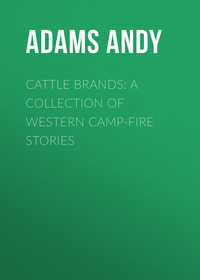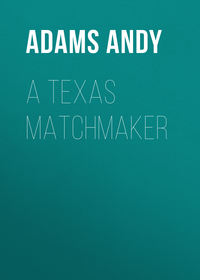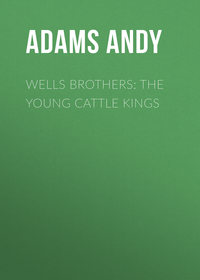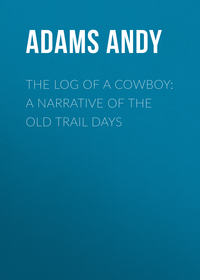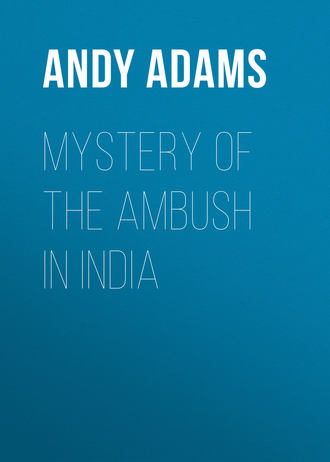 полная версия
полная версияMystery of the Ambush in India
Biff was right: It wasn’t the porters.
At the first warning quiver of the bridge, they had dropped their heavy burdens and made a desperate dive for safety. Nearly across, first one, then the other, had managed to grab the high edge of the canted runway and scramble to the ground beyond. But as Biff looked past them, his eyes opened really wide.
It wasn’t Li or Chuba either!
Both boys were still there, near the center of the bridge, with Uncle Charlie!
The moment the bridge had tilted one way and they had felt themselves sliding with it, all three had made a frantic grab in the other direction. Instinctively, they had gripped the upper side and the slender grass ropes that supported it. They were still hanging on.
What Biff had seen tumble into the gorge were the bulky packs that the porters had flung aside. Those bulging burdens, when falling, had looked exactly like a pair of huddled humans. Now, Uncle Charlie and the two boys were lightening weight by letting their own packs follow the path of the others.
That still didn’t guarantee them safety. The whole weight of the bridge was now swaying on a single rope cable. Sooner or later it was sure to snap; then all hope of rescue would be gone. Now, chunks of the runway were breaking loose from the dangling ropes, which no longer bore their proportionate shares of the weight. That produced a new dilemma.
It was impossible for Uncle Charlie, Li, and Chuba to work their way along that upper edge, because of the gaps. They would have to reach the one remaining cable, climb it to the top of the tower post and come down to the ground. Li and Chuba might manage it; but not Charles Keene, with all his weight.
Chandra had the answer. He had brought along the rope from his log bridge. He tossed one end to Biff, saying, “Hang on tight!” Then, carrying the other end, Chandra scrambled up the lone cable and practically slid from the post top out to where Li and Chuba clung. There, Chandra, Li, and Chuba tied their rope end to the cable; while Biff, Mike, and Kamuka hauled the rope taut and hitched the other end around the tower post.
That filled the gaps along the level route to safety. Chandra went first, pausing to tie dangling liana strands to the new rope to keep it from sagging. Li and Chuba followed, stopping to wait for Charles Keene, even when he twisted one arm in the rope and waved them on with his other hand. If Biff’s uncle tired, they hoped to help him; but what Uncle Charlie lacked in agility, he made up for in endurance.
After minutes that proved long and nerve-racking for Biff and his watching companions, the other boys reached solid ground with Charles Keene right behind them. A moment later, Biff and the rest were swarming around Uncle Charlie and congratulating him, while Barma Shah spoke approvingly.
“That was very good, indeed. And just in time, too. The wind is getting brisker from the gorge. What is left of the bridge will soon be gone.”
At a combined order from Tikse and Hurdu, the bearers gathered their packs. Then they were on their way again. As they veered away from the gorge, Biff took a last look back. The remains of the bridge were swinging like a hammock now, its single strand due to snap at any moment.
Chandra, who was walking beside Biff, touched his arm. “The rope, Biff,” he said in a low voice. “Somebody cut it!”
Biff stared at him. “Are you sure?” he gasped. When Chandra nodded, Biff said soberly, “Then that means there’s an enemy right in our own party.”
That evening, when they pitched their tents in the shelter of some trees on the rim of a rugged valley, Charles Keene remarked:
“Losing a few packs didn’t hurt us, because we were short on porters anyway.”
“Short on porters?” inquired Barma Shah. “How?”
“We had sixty yesterday morning, but there were only fifty-four when I counted them as they crossed the log bridge. That’s why I brought up the rear, to see that no more of them skipped.”
That news brought a grim expression to Barma Shah’s face. In response, he said:
“They may have heard our talk of Yeti. What is more, I saw some big tracks in the snow before we broke camp yesterday. I obliterated them, but perhaps some of the porters saw them first.”
That night it snowed again, though only lightly. In the morning, Biff awoke to hear the camp babbling with excitement. He crawled from his sleeping bag and emerged from the tent, where he promptly ran into Chandra, who told him:
“Yeti tracks again. Hurdu found them on the hill.”
Biff joined Charles Keene and Barma Shah up near some barren rocks. The tracks were much larger than a man’s foot, but clumsy and roughly formed. They led in from the rocks, then back again, as though some creature had come down from the craggy hill toward the camp, only to return to its lair.
Some of the Ladakhi bearers were gabbing among themselves and repeating, “Yeti – Yeti,” much too often, as they walked along beside the big footprints and compared them with their own smaller tracks. Back at camp, Barma Shah conferred with Tikse, who gave the porters a pep-talk in a mixture of Hindi and Ladakhi. They responded in grunts of half-agreement as they gathered up their packs.
“Those sound like yak grunts,” declared Chuba. “Good and bad. They don’t want to go along, but anyway, they go.”
“That is right,” stated Chandra, who had caught the meaning of the speech. “Tikse says they have to go along because they can’t go back, as there is no bridge across the gorge.”
That night, the porters pitched their tents much closer together when they camped. There was another light snow, and in the morning Hurdu found new Yeti tracks beside a rocky slope nearby. Charles Keene was frankly skeptical about them.
“Anybody could have made them with a piece of brushwood,” Biff’s uncle declared, “or in half a dozen other ways. But I guess Tikse can’t convince his crowd of that.”
“Tikse thinks they are Yeti tracks himself,” returned Barma Shah. “That is the real trouble.”
All day the Ladakhi porters kept watching the barren ground above the tree line, for that was the high altitude at which the Yeti supposedly dwelled. They quickened their pace and reached the next campsite well before dusk. There, trouble seemed over, for this was a valley where two trails crossed, and already a nomadic tribe was camped there. They greeted the party from Leh and gladly sold them fresh provisions.
That night, there was music and mirth around the campfires. The morning dawned crisp but pleasant, for there was no sign of any snow. Nor was there any sign of Tikse and his Ladakhi porters. They had pulled out at dawn, taking the other trail the long way back to Leh, leaving only Hurdu and a dozen others who were not Ladakhi.
That automatically promoted Hurdu to chief guide, and when he suggested hiring some of the nomad tribesmen as porters, Barma Shah favored the idea, but asked for approval from Charles Keene, as joint leader of the expedition. Biff’s uncle was all for Hurdu’s suggestion.
“They look to me like Sherpas,” he declared. “Like those friendly chaps we met in the valley where we landed our plane.”
“They are not Sherpas,” put in Chuba politely. “I listen to their talk, Sahib Keene. They call themselves Changpas. They do not come from the south, but from the north.”
“That means that they are not Nepalese,” stated Barma Shah, “but Tibetans. They are accustomed to these high altitudes perhaps better than those who live in Ladakh or Nepal. What is more” – he lowered his voice – “they have probably heard less about the Yeti.”
“Then let’s hire them quickly,” returned Charles Keene, with a knowing smile, “before they can change their minds.”
Hurdu hired the Changpa bearers, and the march was resumed. But the nomads, though sturdier than the old crew from Leh, lacked their steady-going qualities. They paused frequently to rest and eat, even hinting that they might drop their packs and quit. So Barma Shah told Hurdu to cut the day’s trek short as soon as they reached a suitable campsite.
That went on for three days, which pleased Biff and the other boys, as it gave them more time to roam at large. They had found little to talk about with the porters from Leh, but this Changpa crew were mostly hunters. They had brought throwing spears as well as bows and arrows, and at every halt, they let the boys try the weapons.
On the fourth morning, Biff awoke to find more snow on the ground. Nobody else was up, for the carefree Changpas were late risers. Glancing off beyond the camp, Biff saw something that riveted him. Going back into the tent, Biff wakened the nearest boy, who happened to be Chandra. Motioning for silence, Biff whispered: “Yeti tracks! Come on!”
Chandra came, bringing his trusty hand-axe. Biff nodded approval and promptly “borrowed” a throwing spear that was standing outside a Changpa tent. He then led Chandra to the first of the marks that he had noticed in the snow. They looked like footprints and big ones, half the size of snowshoe tracks. Breathless, Chandra gestured back toward the camp.
“Maybe we better call others?”
“Not yet,” returned Biff. “Let’s see where these lead. Then we can plan ahead, before everybody gets excited.”
The tracks led up the slope, but instead of ending there, they followed a snow-covered ledge. Beyond that was a huge, chunky rock, and as Biff glanced in that direction, he saw a great tawny figure with a shock of thick, black hair, as it bounded from cover.
Then it was gone, among another cluster of rocks. Biff was after it, beckoning Chandra along, and they saw the thing again, as it sprang to another snowy ledge. There it dropped to all fours, and by the time the boys reached the ledge, it was gone again, but its footprints showed in the patchy snow. The two boys passed a slight turn where the rocks rose like jagged steps, tufted with snow. As Chandra started in that direction, Biff noticed an arched gap in the jagged wall that rose beside the ledge itself.
Biff turned and called, “Wait, Chandra. There’s a cave here – maybe that’s where he went – ”
Chandra looked back, and his face froze with horror. He was too startled even to shout a warning, but the look in his eyes, which were staring straight past Biff, told enough. Instinctively, Biff wheeled about, then recoiled as he turned his eyes upward.
From the cleft in the rocky wall loomed a tremendous hulk of reddish brown. Tiny eyes were glaring above wide-open, long-toothed jaws, while massive, sharp-clawed paws clamped downward, inward, toward the boy’s dodging form.
Biff Brewster was all but in the grip of a gigantic Tibetan bear, one of the most dangerous creatures that roved those rocky heights!
XVIII
The Frozen Waterfall
All that saved Biff at that moment was the Changpa spear that he had snatched from outside a tent. He had the weapon in his hand, and as he dodged, he jabbed the spear point at the creature from the cave. It was puny compared to the bear’s bulk, but it bothered the big beast. Clumsily, the bear batted aside the jabs, and that diverted its action.
Biff now had time to dive away. He flung the spear as he went, but it flew wide. Hardly had it clattered on the rocks before another weapon whizzed past the bear’s head: Chandra’s hand-axe. Like Biff, Chandra timed his throw too late. The bear was already dropping on all fours, about to lope after Biff. Biff saw that in a glance and began thinking fast.
Bears, though clumsy, could move swiftly and would attack if angered, which this one evidently was. Tibetan bears were death on yaks and sheep; that Biff had also heard. Maybe they’d keep coming after them on ledges like this, so there was no use acting like a sheep or a yak. Biff halted suddenly and flattened himself against the rocky wall, ready to reverse direction if the bear came bounding past.
On the contrary, if it reared, Biff intended to be off again; and while waiting that moment of decision, he took a quick look down toward the campsite. That proved smart indeed. Instead of the area being all but deserted, with everyone asleep, it literally teemed with action. Uncle Charlie and Barma Shah were coming up the slope armed with rifles and followed by half a dozen Changpa tribesmen, all with bows and arrows.
All the other boys were coming, too, apparently shouting as loudly as they could, but the wind was against them, which was why Biff hadn’t heard them. They were gesturing, though, and that he understood. Wildly, all were waving for him to keep going along the ledge. That Biff would have done anyway, for just now, the bear had arrived and was rearing for another lunge. So Biff took off again, hoping that the ledge would lead somewhere.
That wasn’t necessary. From behind him came the ping of bullets as they hit the ledge, followed by the boom of the actual gunshots from below. Biff darted another quick look and saw arrows coming down from the sky, with the rearing bear as their target. The bear hadn’t budged from its last position, except to set itself up for the marksmen. Suddenly bristling with arrows, it toppled, rolled sideways, and fell from sight over the ledge.
Everybody took credit for the kill, which they had a right to do. Uncle Charlie had fired half a dozen shots and was sure that at least two had landed. Barma Shah quietly showed Biff his rifle, which still had a special gadget fitted above the barrel.
“This time,” Barma Shah confided, “it was a telescopic sight. I only use the flashlight beam at night.”
As for the Changpa marksmen, there were six of them, and there were six arrows in the dead bear. They knew which arrow was whose, because all had identifying marks. They chattered among themselves, each claiming that his shaft had been the best. They were still at it after their comrades had carved the bear into steaks for the evening dinner at the next campsite.
That pleased Barma Shah, because nobody was interested in the Yeti tracks any more. He mentioned this fact to Hurdu, who interpreted it to the Changpas thus:
“You see what fools the Ladakhi are? Day after day, they see tracks in the snow and think they are Yeti footprints. Instead, they are just bear tracks. The big bear followed, hoping people have yaks that bear can kill and eat. Instead, people kill bear and eat it. But people who kill bear are Changpas, not Ladakhi!”
When they stopped for a noonday meal, the Changpa bowmen were still arguing whose arrow had killed the big bear. While the other boys were watching and quietly getting a wallop out of the pantomime, Chandra drew Biff aside and asked:
“Who do you think really killed the bear?”
“Uncle Charlie fired a lot of shots,” replied Biff, “And he may have made some hits. After all, we didn’t dig the bullets out of the carcass. But I know – and you know – that Barma Shah is a terrific marksman – ”
“This is true,” interposed Chandra. “But Barma Shah did not kill the bear. The Yeti did.”
Biff stared amazed.
“We saw Yeti,” said Chandra. “Didn’t we?”
“We saw something go hopping up to the ledge,” conceded Biff, “but when we got there, out popped the big bear.”
“From the cave, yes, but I saw Yeti keep going up by rocks above.”
“So you said, Chandra. But are you sure?”
“Sure I am sure. Because the number one shot that killed the bear, it came from up there. Afterward, there was much shooting. But first, the bear had gone like this.”
Chandra gave a perfect imitation of the way the bear had stiffened on the cliff. So Biff decided not to argue it.
“You may be right,” he told Chandra, “but let’s keep it to ourselves. The Yeti is supposed to be right smart, maybe more man than ape. But to class him as a expert rifleman, well, people just wouldn’t go for it.”
“You go for it, Biff?”
“I might go for anything, Chandra.”
Biff let it go at that, because his own recollections of what had happened on the ledge were somewhat confused, so he could allow for a few mistakes on Chandra’s part. Besides, there were more important things to think about. The most important of all was brought up in an odd way when they pitched camp late that same afternoon. Biff heard Li and Kamuka begin one of their old arguments, while the other boys gleefully listened in.
“Well, Kamuka,” commented Li in an indulgent tone, “now that you’re high in the Himalayas, how do the Andes stack up?”
“Still bigger,” returned Kamuka. “Anyway, they look bigger. That’s what’s most important.”
Kamuka looked for someone to agree, and he received an approving nod from Chuba.
“But there are things here that you won’t find in the Andes,” Li went on. “For instance” – he caught himself when Biff gave him a warning glance. Instead of mentioning Yetis, Li made a quick switch. “For instance, we have Lamas. You don’t have people like that in the Andes.”
“Sure we do,” rejoined Kamuka. “Only they don’t look like people. They look like yaks.”
That brought a laugh from Biff, in which Mike joined. Chandra and Chuba were still puzzled, so Biff explained:
“Li means a Lama, spelled with one ‘L’ like Li. The Lamas are important people. We are on our way to see one now. But Kamuka is talking about llamas, spelled with a double ‘l.’ They are animals that carry packs in the Andes, as yaks do here.”
Biff left it to Mike to go into further details on the subject while he went over to talk to Uncle Charlie and Barma Shah. Biff put a simple question.
“How are we going to find Chonsi?” Biff asked them. “When will we hear from the Grand Lama, the wisest man in the East?”
“I don’t know,” began Barma Shah, “unless – ”
His eyes narrowed as he spoke. He was looking off toward the nearest mountain pass, and Biff, following his gaze, saw a tiny figure coming toward them at a jog-trot.
“What is it?” Biff asked anxiously. “Not – not a Yeti?”
“No, no.” Barma Shah had raised a pair of binoculars and was studying the approaching man. “It is a longompa, a special kind of runner, who carries messages from one Lama to another. A longompa can keep up that pace all day.”
“And he may have a message for us?”
“Very possibly.”
The rangy longompa never slackened speed until he pulled into the camp. There, in some uncanny fashion, he picked out the leaders of the party. But when he approached Barma Shah and Charles Keene, he did not hand them the envelope he carried. Instead, he gave it to Biff. Then, with a faraway stare, the runner started off again, oblivious to everything – including the weather, for despite the freezing temperature, he wore only a simple goat skin and a pair of open sandals.
Biff opened the envelope and brought out a sheet of parchment which proved to be a map. He showed it to Uncle Charlie and Barma Shah. Together, they studied it in the firelight, for it was now dusk. The map puzzled them completely until Charles Keene declared: “I don’t get it. Somebody has drawn what looks like a streak of lightning – ”
“That’s it! The Place of Living Thunder!” Barma Shah exclaimed.
He brought out another map and spread it in the firelight. It showed the whole course that the party had followed. Near the present campsite was a zig-zag line, exactly like the one on the parchment, but on a smaller scale.
“It is a chasm a mile deep,” explained Barma Shah, “but only half that distance across. Nobody has ever gone there, because it is supposed to be impassable.” He traced a dotted line on the longompa’s chart. “It must lead to the Lost City of Chonsi. No wonder no one has ever found it! We’ll start for there tomorrow.”
They were off to an early start the next morning and soon were among scenes of grandeur that surpassed any so far encountered. Narrow valleys filled with odd, colorful flowers formed a contrast to the snow-topped peaks that loomed high above. Then, abruptly, the trail reached the brim of a deep, granite-walled canyon. Nearby was a cluster of trees indicated on the parchment map. A dotted line began from there, so the party moved into the grove. There they were halted by a big rock until the boys probed the underbrush around it and found stone steps leading downward.
Soon, the whole procession was following a dizzy trail chiseled in the canyon wall. Barma Shah had been right regarding its depth: it was at least a mile and perhaps more. The vast gulch followed a zigzag as shown on the map, and as they steadily descended, the brim of the gorge was totally lost from view, due to the narrowing of the walls.
Then, the zigzag sharpened, and on their own side of the gorge, they saw a fascinating sight. Through an opening in the granite poured what looked like a mammoth waterfall, except that it was utterly motionless. At the bottom, half a mile beneath, was a vast, glassy mass, pock-marked by thousands of huge stones.
“An icefall!” exclaimed Charles Keene. “A stream of water, frozen solid, pouring down to a glacier below!”
As he spoke, they saw a chunk of ice and rock drop from the brink and slide out along the graceful, frozen curve until it dropped straight down and struck the glacier. Then came a rising echo that reverberated through the gorge like a long roll of thunder. When the sound finally died away, Barma Shah said coolly:
“That is why they call it the Place of Living Thunder. People have heard that roar from the brink above, but we are the first to see what caused it – except for those who live in the valley.”
Their course brought them to the huge icefall. This time Charles Keene and Barma Shah led the way together, followed by Hurdu and the Tibetan bearers, with Biff and the boys bringing up the rear. The path seemed a very safe one, being hewn in the solid rock. Granite steps took them upward to the overhanging curve of the giant icefall. Above that, a bridge of large steppingstones crossed the whitish flowing mass.
Biff, in the lead, leaped to the first stone and felt it quiver. He should have turned back, but instead, he tried to jump on to the next. The first stone suddenly went from under him, spilling Biff backward. Mike, who had reached the top of the steps, grabbed for Biff’s hand and caught it with both of his own. Then Mike was swept off balance by the force of Biff’s slide. Both would have gone skimming over the brink, except that Chuba and Kamuka, coming next, were in time to catch Mike’s ankles and hold them.
They hadn’t the strength to pull the pair back, and Biff, from his precarious position, realized why. That curving brink of perpetual ice was so smooth that it offered nothing in the way of a hold, not even the slightest amount of friction. Slowly, surely, the drag would bring all four along, unless someone’s hold gave out.
In any case, Biff Brewster would be the first to slide out over that fatal curve and plunge the half mile to the glacier below!
XIX
The Lost City
From his hopeless perch, Biff heard Kamuka and Chuba shouting up above. “Come on, you fellows!” they yelled. “Lend a hand!” They were calling to Li and Chandra, who were still coming up the granite steps, but it was useless. Biff and Mike represented too much dead weight, even for all four.
Mike had Biff’s wrist in a powerful grip. They were face to face as Biff looked up and said, “You’ll have to let go, Mike. They may be able to haul you back, but not both of us.”
“It’s both,” gritted Mike, “or neither!”
“But you’ll only be dragging the others along, too. Can’t you understand?”
“No.” Mike grinned grimly as he was jolted upward. Then, as he slipped back downward, he added, “Yes.”
Mike realized that Li had joined Chuba and Kamuka; that with Li’s helping hand, they had managed a temporary lift, only to lose what little they had gained. But Mike still gripped Biff.
“Chandra will be helping them next,” Mike said reassuringly. “With four pulling, it will make a difference.”
“Yes, they’ll manage to hold on a little longer,” groaned Biff, “but it can’t change things, Mike. They still can haul you up, if you’ll only let go.”
“Only I won’t let go!”
A sharp sound was beating through Biff’s brain. It came, “Crack – crack – crack – ” in deadly monotone. He imagined he heard a new voice too, Chandra’s voice, saying, “I’ll be there, Biff!” Then came the “Crack – crack – ” and again, “I’ll be there – ” closer, it seemed, and just below. For the first time, Biff steeled his nerve and looked down.
Chandra was there! On the curving brink itself, hanging to the ice where it was steeper than the spot where Biff himself was stretched. In his hand, Chandra held his axe, which he had retrieved after hurling it at the bear. With it, he was chopping into the ice, making those “Crack – crack – ” sounds. Chandra hadn’t gone up the steps to join the boys above. Instead, he had hacked steps of his own into the fringe of the icefall!


